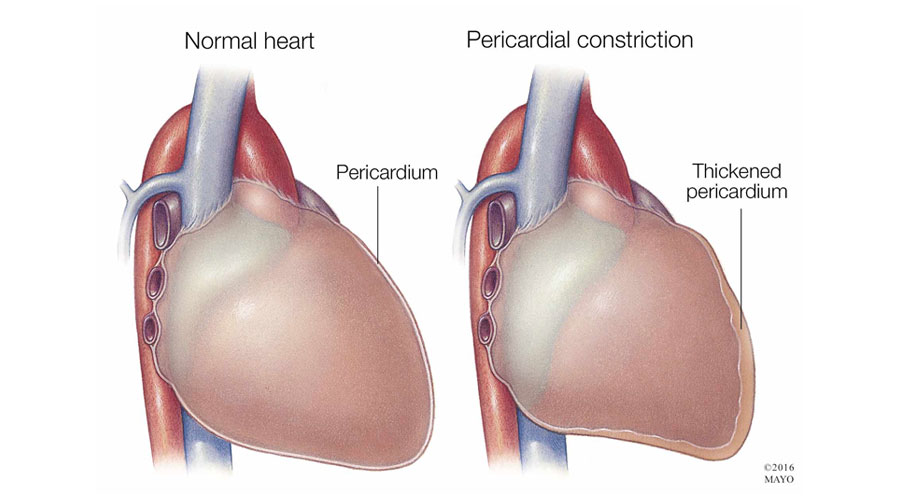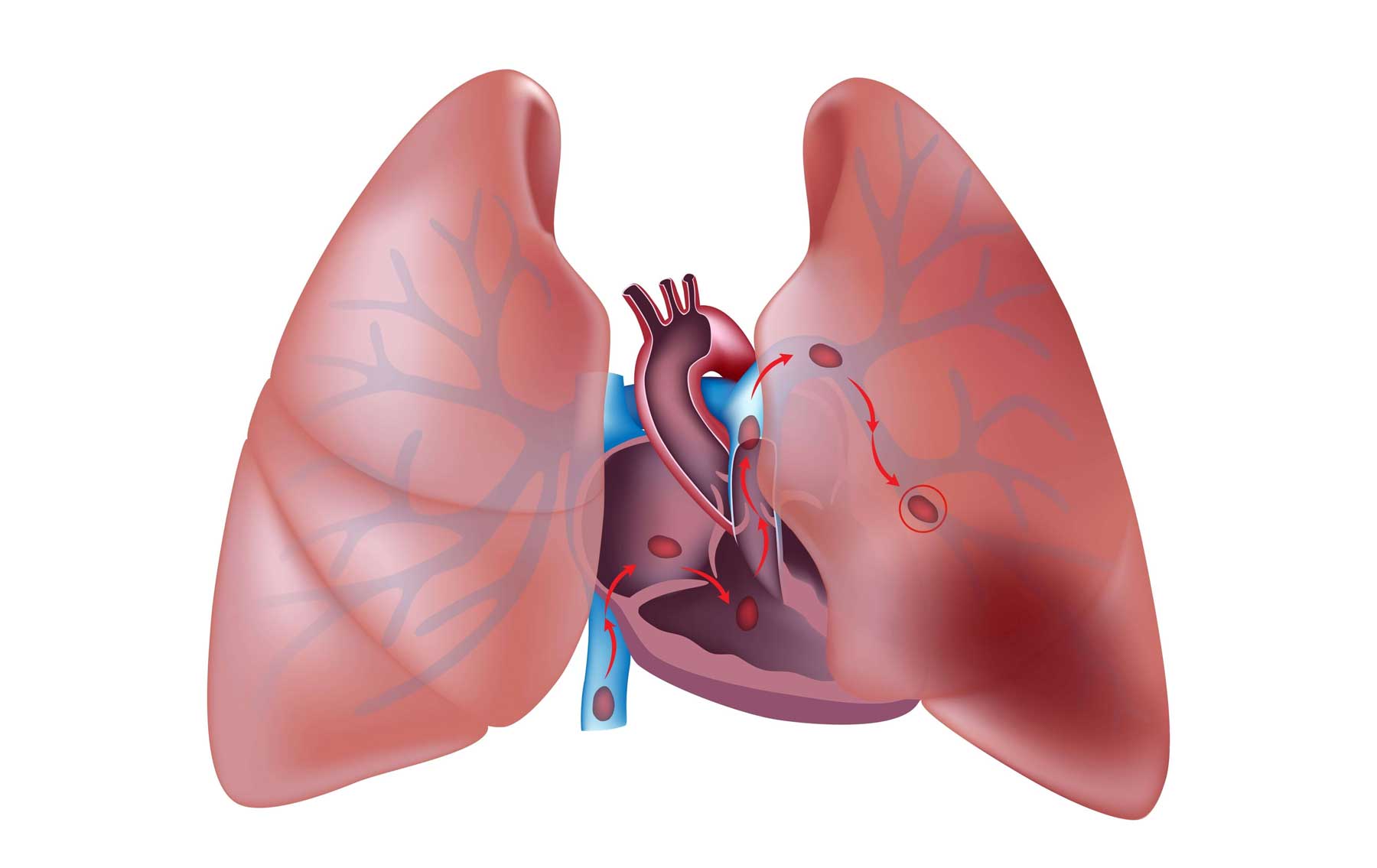Deep Vein Thrombosis Thrombosis is the formation of a blood clot (thrombus), which can partially…

Constrictive Pericarditis
Pericarditis is inflammation of the pericardium, the membrane that surrounds the heart. The course of constrictive pericarditis is different from that of acute pericarditis. Constrictive pericarditis results from long-term inflammation, frequently of unknown cause, but sometimes from a chronic infection such as tuberculosis or from radiation therapy, which can thicken, scar, and shrink the pericardium until the heart cannot fill with blood normally. Because tuberculosis is no longer widespread and radiation techniques have improved, constrictive pericarditis is not common.
Symptoms
The main symptoms of constrictive pericarditis are swollen legs and a swollen abdomen caused by fluid accumulation in those areas. Symptoms of heart failure such as shortness of breath and fatigue may also occur. Without surgical treatment, severe heart failure is likely to develop.
Treatments
Constrictive pericarditis can be treated with a surgical procedure called pericardiectomy. In this procedure, the surgeon carefully removes the thickened pericardium from the surface of the heart, which relieves the symptoms significantly.



